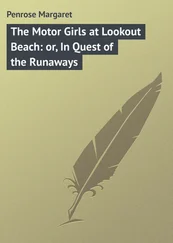“Oskar,” said Louise, “you shouldn’t lie about serious things.”
“I’ve heard a lot of the other boats are damaged. No one will believe me, of course, but I only wanted to destroy my own boat. I hated it.”
“You set it on fire?” Martin said. “Is that what you’re saying?”
“He’s only drunk,” Louise said.
“I did,” said Oskar. He took a step away from the car.
Louise said something unintelligible. Martin watched her lift herself from the seat and drop back down again. “What’s wrong with you?” he asked.
Oskar leaned forward so that his body stretched into the car up to his shoulders. “I’m not afraid anymore,” he said. “You shouldn’t be so scared of yourself.”
“What does that mean?” asked Louise.
Martin turned the ignition fully off and removed the key. The interior light went out. Oskar walked away from the car and back toward the street. In the mirror, Martin watched Oskar approach the dim circle of red light from the traffic signal at the intersection. Before Oskar reached the light, he turned around. The purse hung from his shoulder.
“Come on,” Martin said, spitting the words out to himself. He got out of the car and walked toward Oskar. “I’ll take you home,” he said loudly. It was lighter now than it had been when they left the party. He heard Louise get out of the car, close the door.
“I’m tired,” she said.
The traffic lights changed and the washes of green and red on the asphalt switched places. “We’ll take you home, Oskar,” Martin said. “You don’t feel well.”
A car passed, going in the direction they’d come. Oskar crossed to the middle of the street. Another car approached, this time coming from the opposite direction, and Oskar jogged the rest of the way across. At the other side of the street he turned and looked back at Martin and Louise.
“Just let him go,” Louise said. “Please. We have a long drive home.”
Martin stepped out into the street and crossed to the center divide. He stood between lanes, waiting for a car, approaching quickly from the right, to pass.
He felt the sound before he heard it. It was late, probably too late for boats to come into the bay from the lake. The sluice gates did sometimes freeze in winter. Perhaps he had heard the motor of the gate straining against the ice down in the narrow bay just to the south. Or else he had heard a truck or a bus slipping on an icy patch on the bridge, engines revved too high. But as the sound got louder, grew from a deep rumble to a more distinct hum, out of his body and to his ear, it took shape and he was able to picture the planes above. He could not be sure how many but there were several. For four years, Bent had been waiting for the war to arrive. He had watched it spread and smolder on the continent and through the Pacific. Photographs and newsreels every day depicted new horrors. The fighting had intensified in Finland in recent weeks. Early February, the Soviets and the Finnish had signed an armistice but the bombings on Helsinki had not stopped. They had intensified, obviously designed to force a Finnish surrender. He knew this was not a good sign that Sweden could stay neutral. The war had finally come. It was right above him. Yet, beyond the orange glow of the street-lamps he saw only stars in a clear sky, not the earthy shapes of low-flying planes he expected. He took a step into the street, checked to his right for oncoming traffic, and, seeing that there was none, began to cross.
It was a quarter after eight in the evening. A storm had earlier cleared and there was a layer of fresh snow on the ground. He was on his way home from an evening out with Agneta, a woman he knew from Karolinska Institute, where he was studying to become a pediatrician. She worked in one of the libraries. They had had tea and talked about the Continuation War. Tensions had not resolved following the Winter War in 1940 and by 1941, the Continuation War had broken out, consuming the Karelian Isthmus. The Continuation War was on everyone’s mind. Swedish newspapers reported casualties daily. The bombings were targeted farther and farther west, first Åbo, then Åland. Stockholm could be next. Bent feared that one way or the other this new war would spill across the Baltic, drag Sweden the way of Norway and Denmark. For three months in 1940, he had fought in Finland. His volunteer unit was assigned to a position near the line at Märkäjärvi. The fighting had shaken him, driven him strongly into support for a neutral Sweden. Even four years later, his attempts to forget were too easily peeled back to reveal images of icy blood and searing wounds from mortar shrapnel. He had never before and not since felt a cold like that winter. The branches of the pines were so heavy with snow they sagged lower than his head. The earth in the trenches was frozen solid and every morning new bruises appeared on his legs from crouching in the dirt.
The sound grew still louder. It was a wave pounding down on the city, impossibly close. He neared the other side of the street. A car was approaching from his left, so he took two short, quick steps toward the curb. A young woman on the sidewalk looked up at him just as he stepped onto the curb. Her hair was darker and her hips broader, yet she reminded him of Agneta. He was eager to see Agneta again. They had plans to meet the following day. The thought made him smile. Just as he did, he was struck in the face by the hail of an erupting window. He fell to his right side and could not hear. Snow soaked through his pants, clung to his coat and hair. Shoes rushed toward him and away from him. Faintly past the blur of feet and legs he saw soldiers, white-capped, rifles drawn. He heard orders shouted into the thin cold air, steam billowing from open mouths. The round, aching pain in his shoulder brought him back to the pavement. He knew at once he had broken bones. This was a diagnosis he had no trouble making. He opened his eyes and saw that a man stood over him. The man shouted, “The blast knocked you over, the blast knocked you over.”
The pain in his shoulder made it difficult to see. He knew of no physiological reason for this but it was true. The young woman who had reminded him of Agneta stumbled back in his direction. She held her hands to her face. From between her fingers, blood dripped down the backs of her hands and over her wrists. He called out to her, not knowing what had happened, only that she needed help and that his shoulder hurt. The pain radiated outward in a dull circumference. His coat was soaked through with snow. He tried to stand. The woman kept her hands to her face. She backed up slowly to the corner of the building and leaned against the quoining. Her shoulders were even with one of the horizontal intersections. She began to slide downward into a sitting position. Her dress caught on the building’s facade and rode gently upward over her knees. Through his pain, he was aware of the tops of her stockings and the whiteness of her thighs. She dropped her hands to her side to brace against the sidewalk, and she sat. Blood pulsed from two deep lacerations to the right side of her face, one directly below her eye and the other stretching the length of her jaw. He looked for help but found only empty streets and smoke and flames rising from behind the trees at the edge of the park. He was in a Stockholm he no longer recognized, and he understood at once that here anything at all might reasonably transpire.
She was running up a gentle rise in the path toward him. Henrik worked with her husband, Peter, and had met her several times, so he recognized her immediately. When they’d passed each other, he slowed down and turned, sensing she’d done the same. It was unusual for him to stop his run to talk with someone he knew, even if he knew that person well, but the morning had been pleasant and he was in a good mood in spite of the approaching clouds, and she’d smiled at him in such a way that he thought he should stop to say hello. They each waved, Henrik walking back up the hill and Helle down it.
Читать дальше











